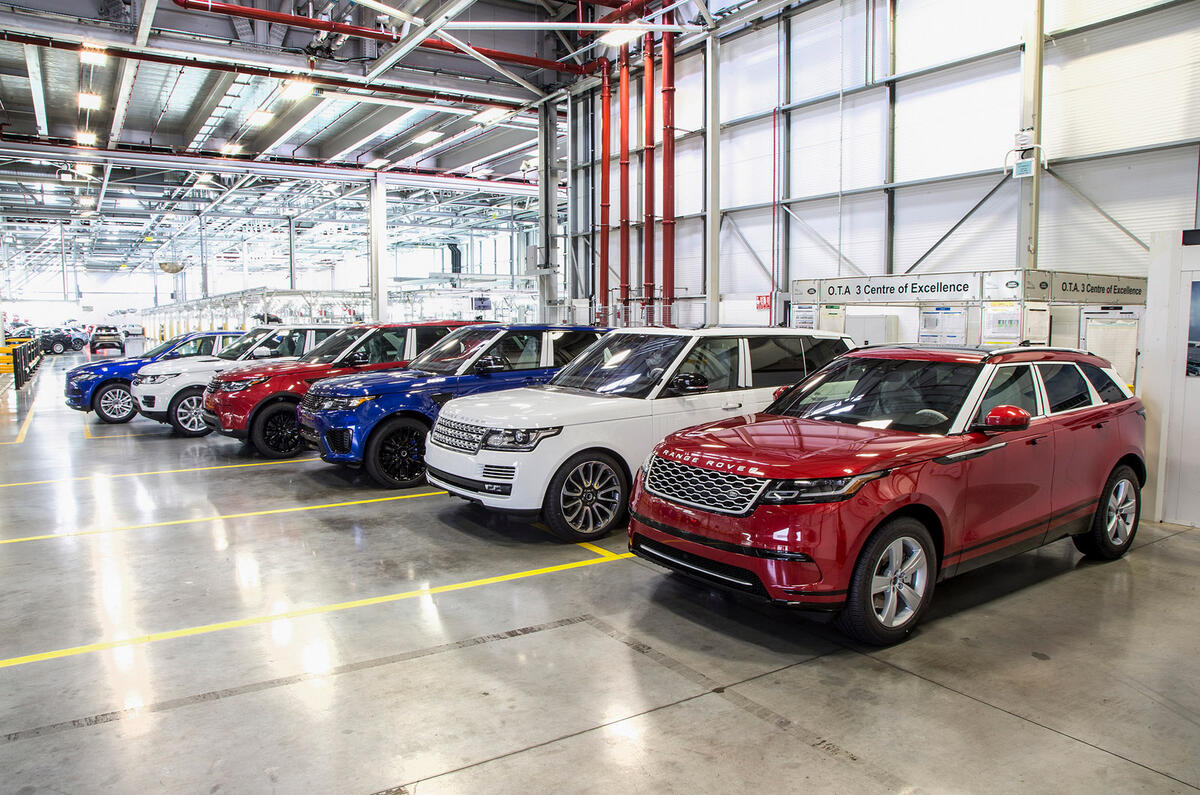Jaguar Land Rover's problems started long before the pandemic, with its Charge and Accelerate and Charge+ programmes having been launched as it scrabbled to save an almost-inconceivable £2.5 billion in 18 months back in 2018 as Chinese and American sales slumped and the collapse of diesel hit it especially hard, its sales mix having peaked at around 90% of the total.
Thousands of job losses followed, as did tales of no-holds-barred penny-pinching. Now laughably, staff often complained that they weren’t allowed to take the train from the Midlands to London for meetings, instead being told to dial into a video conference.
But for every charge, it still felt as though JLR was struggling to accelerate, caught on a conveyor belt of the world’s wider issues in the shape of Trump, China, diesel (even with a committed hybrid rollout) and Brexit; and poleaxed by a product line-up that risked losing its swagger on the Land Rover side prior to the arrival of the new Defender and never even hit its stride on the Jaguar side, the far-reaching but low-volume and low-profit I-Pace aside.
So the company found itself at a crossroads, just as the industry as a whole did likewise, caught in a vortex of cost-cutting at exactly the moment it needed to be investing in electrification, autonomy and more, as well as needing to shake up its existing range to better reflect buyers’ tastes. While much noise was made about protecting R&D budgets, it’s implausible to think all the money kept flowing – and there were more than enough whispers of delayed or curtailed projects to confirm that. And then Covid-19 appeared.
But what could have been a death blow, or at least a blow hard enough to push JLR into a joint-venture or merger, was not. Thanks to its wider issues, JLR went into the pandemic leaner than most and, notably, made a profit last quarter off the back of encouraging revenues. Its troubles are far from over, but could it be that the pain of past years is what has saved it now?
Nothing is yet certain at JLR (or anwhere else in the world), but while new boss Thierry Bolloré has kept a low profile thus far, there have been snippets of decisive action: a new group role for former design chief Gerry McGovern, whose Midas touch gets a wider audience, plus the creation of a new senior role for a head of quality and customer satisfaction (has any manufacturer ever more needed to overhaul its standards and, to be fair, perceptions in this area?) point to a decisive start.
Maybe, just maybe, the coronavirus has been the leveller that JLR needed. A rough Brexit could set it back again, and surely there are more tough decisions ahead, but it could be that the time is finally right for a leaner JLR that’s keener to accelerate again.
READ MORE
Jaguar Land Rover's design team shuffle may signal bigger changes
Jaguar Land Rover pandemic recovery hit by limited saloon demand




Join the debate
Add your comment
I commend Jaguar for doing all they've been doing lately. Just a couple of months ago they brought out facelifted versions of 4 of their cars; the XE, XF, E-Pace and F-Pace, and even lowered the prices of the former 2 to make them more competitive. The I-Pace is a fairly new model, which has received outstanding reviews, and for a car costing from over £65,000, is selling very well. And the F-Type was of course facelifted only a year ago.
In terms of electrification, obviously there's the I-Pace, which began getting delivered to customers before the EQC OR E-tron, and well before the iX3 had even been unveiled. Then there's the E-Pace and F-Pace plug-in-hybrids, the latter I saw advertised on TV tonight. Finally, the XE, XF, E-Pace and F-Pace are all available as mild hybrids.
Every model in Jaguar's line up is available with a petrol engine.
I have no doubt whatsoever that this company has a bright future ahead of it. Great things have happened since Thiere Bolloré became CEO. Let's home things stay that way.
JLR's failure to invest in hybrid power trains, in particular petrol hybrids and electrification generally was not because of issues for the industry as a whole. JLR was issuing, through its press arm, Autocar, messages stating diesel was the future and that they were investing in diesel right up to the end of 2019. Every other car company, with the possible exceptions of BMW, VAG and Mercedes-Benz, had already "got the memo" and were releasing PHEVs, BEVs and ditching diesels far earlier than JLR. Even now it is almost impossible to find a non-diesel JLR car to test drive or buy at a dealer unless you are buying an i-Pace. Autocar need to stop shamelessly plugging JLR and stop trying to re-write history to cover the inadequacy of JLR management decisions.